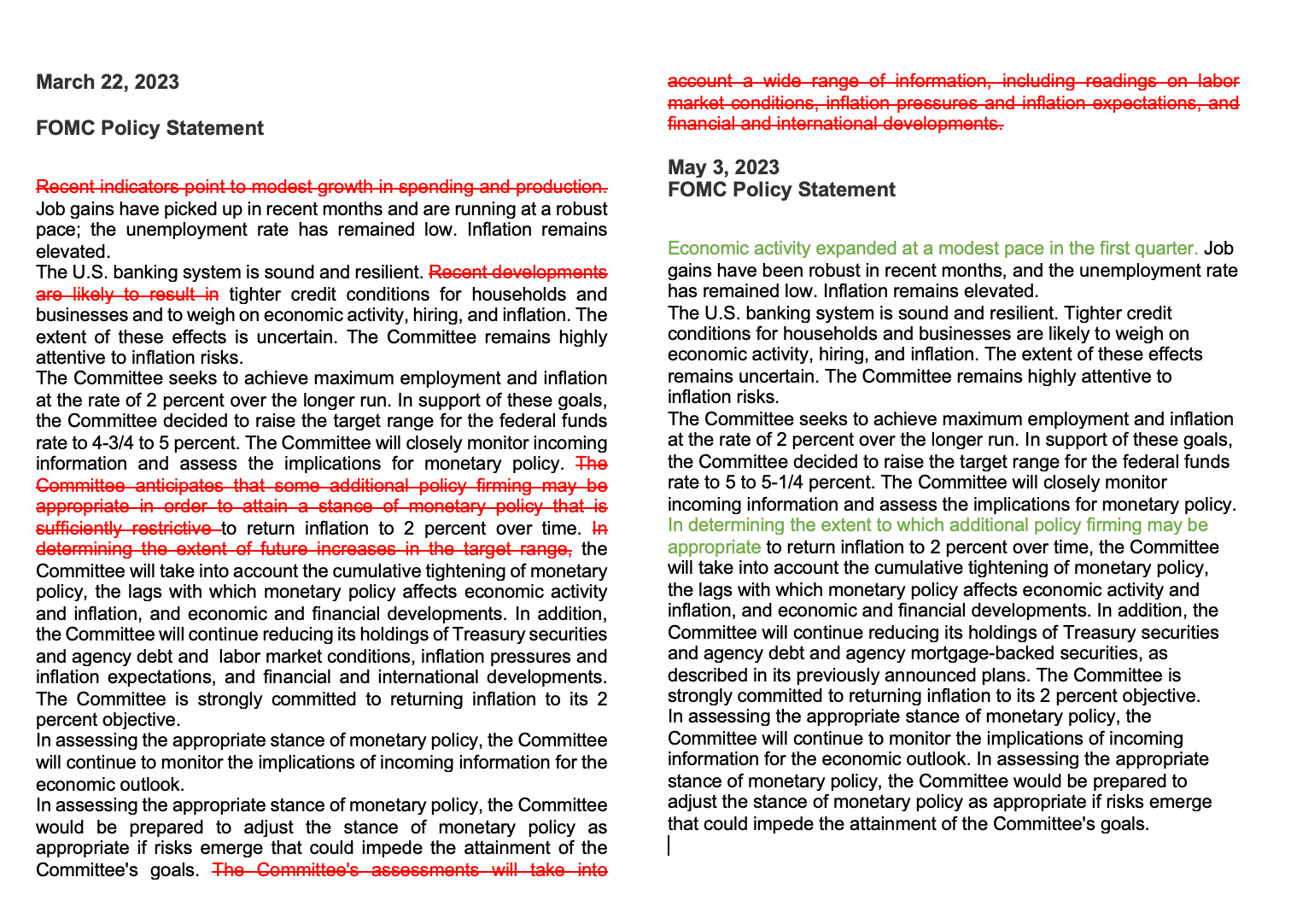Zinger Key Points
- The Fed pushed borrowing costs to the highest level since September 2007.
- Tighter banking credit conditions are expected to weigh on economic activity and inflation going forward.
- Get access to your new suite of high-powered trading tools, including real-time stock ratings, insider trades, and government trading signals.
The Federal Reserve raised the fed funds rate by 25 basis points to a range of 5%-5.25% Wednesday, as expected by the market, delivering the tenth hike in the tightening cycle and bringing the cost of borrowing to the highest since September 2007.
The U.S. banking system is sound and resilient, the Federal Open Market Committee said in a statement. Stricter credit conditions for households and businesses will likely have a negative impact on economic activity, employment and inflation, the FOMC said.
The phrase "in determining the extent of future increases in the target range" was deleted from the FOMC's May policy statement and replaced with "in determining the extent to which additional policy firming may be appropriate".
Differences Between FOMC March 2023 Statement and FOMC May 2023 Statement

Key Takeaways From Powell's Remarks
Fed Chair Jerome Powell said the Fed will adopt a data-dependent approach in assessing next policy moves.
Support for the 25-basi- point increase was very strong across the board, and the idea of pausing was not considered at this meeting, Powell said.
The Fed chair pushed back against market expectations of rate cuts later this year, stating that cutting rates would be inappropriate given the board's estimate that inflation will take time to fall.
In response to a question on whether the Fed will halt in June, Powell said it will address this topic meeting by meeting, taking into account economic data.
In response to a question about whether the Fed still expects a mild recession later this year, Powell said a recession is not his base case.
To prevent noise in economic patterns, a few months of data are required, he said.
Translating tighter credit conditions into rate hikes is uncertain, Powell said, adding that the banking sector is solid and resilient, and will face stricter supervision.
The labor market is very tight, with a low unemployment rate, but the supply-demand balance is beginning to improve as wage increases are coming down to a more sustainable level, he said. Powell expects the labor market to cool further without large rises in unemployment.
To return inflation to goal, below-trend growth and labor market softening will be required, he said.
Market Reaction Following Powell's Press Conference
The U.S. stock market slightly fell after the FOMC statement and following Powell's press conference, with the SPDR S&P 500 ETF Trust SPY easing by 0.2% on the session.
The SPDR Dow Jones Industrial Average ETF DIA fell by 0.4%, while the Invesco QQQ Trust QQQ was flat.
Treasury yields held steady, with the 10-year yield firm at 3.38%.
The U.S. dollar positively reacted during Powell's press conference, with the U.S. dollar index which is tracked by the Invesco DB USD Index Bullish Fund ETF UUP, recovering some ground lost during the session. The EUR/USD pair, which is tracked by the Invesco CurrecyShares Euro Currency Trust FXE, rose 0.5% to 1.1055.
Read also: Former Dallas Fed President Robert Kaplan Explains Why The Central Bank Needs To Pause Rate Hike
Photo courtesy of the Federal Reserve.
© 2025 Benzinga.com. Benzinga does not provide investment advice. All rights reserved.
Trade confidently with insights and alerts from analyst ratings, free reports and breaking news that affects the stocks you care about.